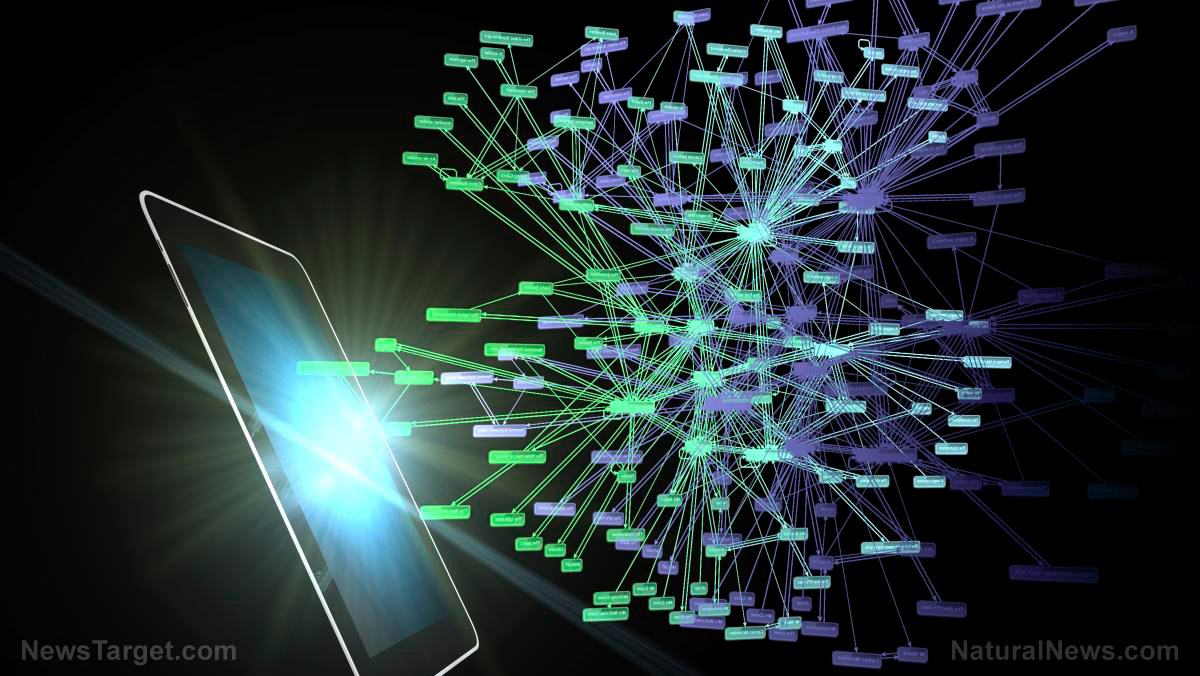Smart meters cook us with thousands of microwave pulses every day, while collecting our private information for the utility company
04/09/2018 / By Isabelle Z.

If you have smart meters in your neighborhood – and there’s a good chance you do – you’re being cooked with thousands of microwave pulses every day. To add insult to injury, the devices are also collecting people’s private information and transmitting it to utility companies.
These digital meters can now be found in 65 million homes around America, and more and more of them are being installed on a constant basis. They communicate via non-ionizing radiation spikes and collect information several times per minute, emitting their signals at anywhere between 10,000 to 200,000 pulses per day.
This constant bombardment leaves the body without any time to recover from the onslaught. The radiation emitted from these meters is 100 times greater than that given off by cell phones, and unlike cell phones, they can’t be turned off by users.
What are these microwave signals doing to our bodies? Experts say they affect everything from our heart rate to our ability to concentrate and our sleep patterns. The shape of people’s blood cells physically changes in proximity to smart meters. Children, the elderly and pregnant women are particularly vulnerable to the dangers posed by smart meters.
As if that weren’t bad enough, The Medical Director of Switzerland’s Paracelsus Clinic, Dr. Thomas Rau, said that such electromagnet loads can cause migraines, Parkinson’s disease, insomnia, heart arrhythmias, attention deficit disorder, and cancer. The World Health Organization agreed, classifying non-ionizing radiation officially as a Class 2B carcinogen like lead.
It is also important to keep in mind that the long-term health impacts of using smart meters have not been researched thoroughly because the technology is relatively new. Therefore, the assurances of safety that utility companies like to give carry little weight.
Smart meters pose huge privacy concerns
While exposing you to this risky radiation, the meters are also transmitting your personal information, and you have no way of controlling this or finding out who can see it. There are plenty of potential repercussions, from the annoyance of being subjected to targeted advertising to the far more serious prospect of your insurance company gaining insight into your lifestyle. If this information makes its way into the hands of hackers, there is no telling what else could happen.
Smart meters are essentially surveillance devices, recording information like when you cook and turn on your lights, when you are home, how often you do the laundry, when you go on vacation, and how many TV shows you watch. California utility companies have already admitted the information collected is provided to the government and other third parties.
Smart meters causing house fires
Potential illness and privacy violations are only part of the story; these meters have also been linked to several house fires, and hundreds of thousands of them have been recalled in recent years. They have a tendency to spark and create too much heat during operation, and the materials inside can be flammable and cause fires. A California man died in 2010 after his house caught fire the day after a new smart meter was installed.
In many cases, these devices are being installed without the knowledge of homeowners. In some areas, you may be able to opt out of using the meters, but you’ll be charged a fee by the utility company to keep your old meter and will likely be charged a recurring fee for having someone come out to read your meter at billing time. It is ridiculously unfair to pay a utility company not to hurt you and spy on you, but many people feel it’s worth it to keep their health and privacy intact.
See SmartMeters.news for more coverage.
Sources for this article include:
Tagged Under: cancer, digital meters, Glitch, microwave pulses, microwave signals, police state, privacy, smart meters, surveillance
RECENT NEWS & ARTICLES
COPYRIGHT © 2017 GLITCH.NEWS
All content posted on this site is protected under Free Speech. Glitch.news is not responsible for content written by contributing authors. The information on this site is provided for educational and entertainment purposes only. It is not intended as a substitute for professional advice of any kind. Glitch.news assumes no responsibility for the use or misuse of this material. All trademarks, registered trademarks and service marks mentioned on this site are the property of their respective owners.




















